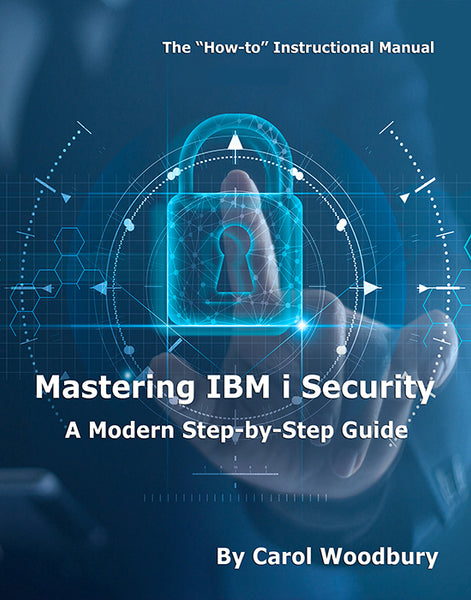While the United States has had a variety of data privacy and/or protection bills introduced into both sides of Congress, none has been passed into law. Debate exists as to whether a national law would contain enough detail or stringent-enough requirements to help the data privacy cause or would actually hurt the cause by overriding more-restrictive state laws. Only time will tell.
If you're interested in tracking recent incidences requiring notification as well as updates to previously publicized events, see the Chronology of Data Breaches page at the Privacy Rights Clearinghouse Web site.
Another initiative started by California requires the three credit agencies—Equifax, Experion, and TransUnion—to allow consumers to "freeze" access to their credit file. That is, the credit agencies are prevented from giving out your credit information. The theory is that if your identity has been stolen, freezing your credit information will make it much harder for the thief to obtain a credit card or obtain a loan using your information. As of this writing, 39 states and the District of Columbia have passed credit-freeze laws, and for the 11 states that have not yet passed a freeze law, the three credit agencies are voluntarily allowing consumers to freeze their files. For the list of states that have passed these laws, see the Consumers Union's Guide to Security Freeze Protection. Note that to freeze your information, you'll have to contact all three agencies.
Finally, states have passed various flavors of identity-theft laws. The focus of these laws is to make identity theft a crime in an attempt to deter would-be thieves. The National Conference of State Legislators provides a site listing of the states with identity theft laws.
Sarbanes-Oxley Act (SOX)
Debate has raged for years over the security implications of the Sarbanes-Oxley Act (SOX). The bottom line is that, while they are heavily implied, no data security requirements are spelled out in SOX. Therefore, it is up to the SOX auditor to levy any data security requirements. The only reason I mention it in this article is because most auditors do examine some parts of IT in general and often examine access controls related to financial data stored and maintained by IT.
To most in IT, "SOX" is a four-letter word. And small and medium-sized businesses have long cried foul at the cost of coming into compliance with SOX. Unfortunately, while SOX compliance requirements for small businesses were relaxed slightly earlier this year, any hopes you might have of Congress re-writing or eliminating SOX have been dashed by the recent losses in the mortgage and financial sectors due to the subprime lending debacle. The "E" word (meaning Enron) is often uttered when people discuss how much management knew of the impending doom of this market and tried to hide it. So there is little hope of getting relief from the burdens of SOX anytime soon.
In fact, more countries are climbing on the corporate-responsibility bandwagon. Japan has passed its own version of SOX, commonly known as J-SOX. Officially named the Financial Instruments and Exchange Law, it goes into effect in April 2008. And given the recent financial scandals in the UK, rumor has it that Parliament is considering its own version of SOX.
Payment Card Industry
The PCI issued a revised DSS in May 2006 clarifying some requirements and adding others. September 30 was the deadline for the Level 1 merchants (i.e., merchants with over 6 million credit card transactions) to come into compliance. Level 2 merchants (those with 1 million to 6 million transactions) have until December 31 of this year. Studies show that over half of merchants remain out of compliance with the DSS. I don't know about you, but that doesn't give me a warm fuzzy when using my credit card.
Perhaps it's the deadlines and their associated fines for non-compliance or maybe it's the news coverage of recent breaches, but regardless of why, the requirements of the PCI's DSS have finally been receiving some much-needed attention by IT. I am still amazed by the number of organizations that think that these regulations don't apply to them. Regardless of the number of transactions, if your organization stores cardholder data, the regulations apply. The only variable is the question of whether you're likely to be audited. If you are a Level 4 merchant, you may think you can slide by and ignore the regulations because you won't get audited. Think again. I saw a Level 4 merchant that had never had breach get audited. And before you make your final decision to ignore these requirements, picture yourself in a court of law after your organization has suffered a breach, attempting to defend your choice to ignore the PCI requirements.
On the flip side, while merchants are receiving a lot of bad press for not being in compliance with these regulations, retailers have begun to fight back, pointing fingers at the issuing banks for requiring them to retain cardholder data. The National Retail Federation recently sent a letter to the PCI Security Standards Council requesting that credit card companies alter the data retention requirements they place on merchants. They contend that there wouldn't be so much data at risk if they (the merchants) weren't required to retain data.
Regardless of who's to blame (retailers or the credit card companies), breaches are occurring. Personally, I don't care who's to blame. I just want my private data protected!
What You Can Do
Why do we care so much about these laws and regulations? Because loss of private information and the identity theft that often results continue to rise at alarming rates.
While new laws and regulations may someday be passed that will make would-be thieves think twice about committing identity theft, the fact remains that the best way to protect yourself against identity theft is to stay vigilant:
- Monitor your bank accounts for fraudulent activity.
- Carefully examine your credit card statements for transactions that are not yours.
- Due to the Fair and Accurate Credit Transactions Act (FACTA) of 2003, we are entitled to a free copy of our credit report annually from www.annualcreditreport.com. Get it and look it over carefully.
- Request your children's credit history as well. (Children are increasingly becoming victims of identity theft.)
- Think twice about giving out your social security number, especially for things like grocery store frequent shopper cards or movie rentals, where there is no need for them to have that information.
- Don't reply to or submit orders via email spam.
- Educate those around you. You and I are in an industry where we are more aware of scams than the rest of the population. You can help protect your family, friends, and colleagues by educating them on how to protect themselves against identity theft.
Finally, if you find yourself a victim of identity theft, visit the Federal Trade Commission's Identity Theft site for tips on what to do.















 Business users want new applications now. Market and regulatory pressures require faster application updates and delivery into production. Your IBM i developers may be approaching retirement, and you see no sure way to fill their positions with experienced developers. In addition, you may be caught between maintaining your existing applications and the uncertainty of moving to something new.
Business users want new applications now. Market and regulatory pressures require faster application updates and delivery into production. Your IBM i developers may be approaching retirement, and you see no sure way to fill their positions with experienced developers. In addition, you may be caught between maintaining your existing applications and the uncertainty of moving to something new. IT managers hoping to find new IBM i talent are discovering that the pool of experienced RPG programmers and operators or administrators with intimate knowledge of the operating system and the applications that run on it is small. This begs the question: How will you manage the platform that supports such a big part of your business? This guide offers strategies and software suggestions to help you plan IT staffing and resources and smooth the transition after your AS/400 talent retires. Read on to learn:
IT managers hoping to find new IBM i talent are discovering that the pool of experienced RPG programmers and operators or administrators with intimate knowledge of the operating system and the applications that run on it is small. This begs the question: How will you manage the platform that supports such a big part of your business? This guide offers strategies and software suggestions to help you plan IT staffing and resources and smooth the transition after your AS/400 talent retires. Read on to learn:
LATEST COMMENTS
MC Press Online